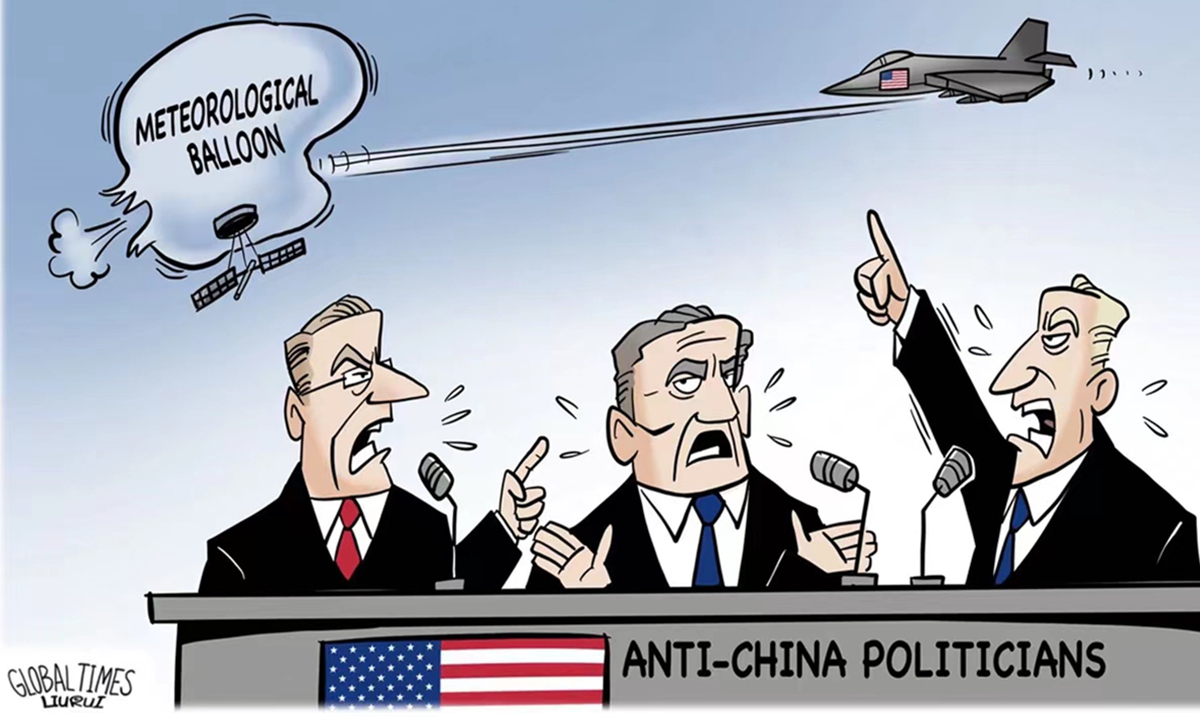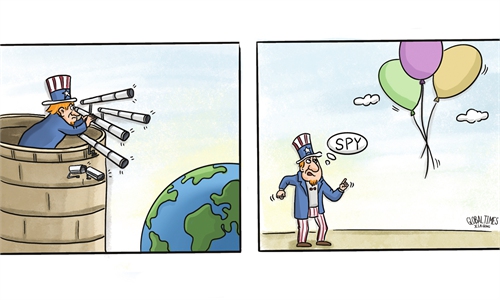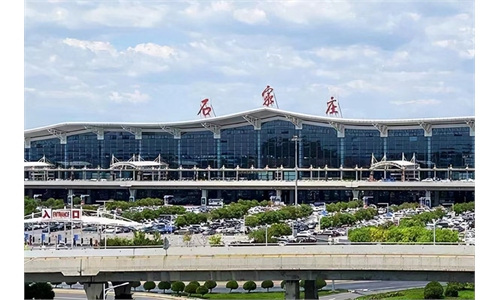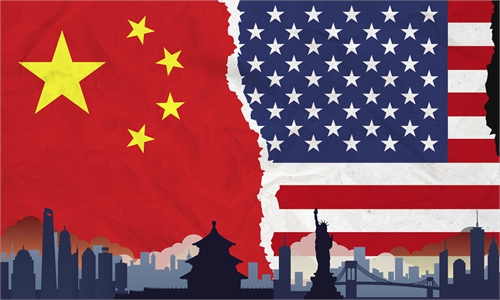US puts itself tens of thousands of meters up and wants a 'soft landing': Global Times editorial

Illustration:Liu Rui/GT
Surrounding the uproar about the "balloon incident," there have been some obvious changes in US' tone in the past two days. US Deputy Secretary of State Wendy R. Sherman said on February 15 local time that the US and China have "never stopped communicating and trying to understand each other," adding "we believe in the power of diplomacy to prevent miscalculations that can lead to conflict." The day before, US Vice President Kamala Harris said she doesn't believe that this month's Chinese spy balloon episode should harm diplomatic relations. "We seek competition, but not conflict or confrontation." Some US media interpreted this as "one of the clearest public efforts" made by Washington to prevent the balloon incident from further fermenting.
This really corresponds to the saying: If it has to be like this now, it's a pity it was ever like it in the beginning. When the US ignored China's opposition and insisted on shooting down a Chinese civilian unmanned airship that strayed into US airspace due to force majeure, and repeatedly shot down so-called UFOs, the US has actually set itself up at an altitude of 10,000 meters, making it difficult to "softly land." Facts have shown that it is easy to inflame the atmosphere, but it is very difficult to defuse it, and Washington's actions have to be bound and shackled by it. The US is in an awkward position of its own making.
Even today, some politicians in the US Congress are still using the issue to stir up trouble. The House of Representatives recently passed the so-called resolution on China's use of a high-altitude balloon over US territory to carry out malicious hype. They want to extract the last drop of political value from this accidental and unexpected incident between China and the US. In this regard, the Foreign Affairs Committee of the National People's Congress of China issued a statement on February 16, expressing strong condemnation and firm opposition. However, in the mixed messages sent by the US side, it's clear that some people, including the US administration, want to cool down.
After a period of turmoil, some people in the US government have gradually regained their composure and realized that turning an accident into an incident would not end well. There has also been an increase in public reflection. The Washington Post commented that breathlessness over a balloon has revealed more about US politics than Chinese policies. The Biden administration is failing to turn it into a diplomatic opportunity, afraid of looking soft on China, it said. The New York Times questioned that US-China relations keep getting worse. Do they have to? The article believes that the reaction to the "balloon incident" is yet another example of exaggerating the "China threat." These opinions are largely directed toward the US government.
More and more Americans are realizing that the way the US government handled the balloon incident was problematic. The consequences of overreacting and making a fuss are clearly detrimental to the US, and the outside world can sense their exhaustion with the relentless hype of the "China threat" theory. In the context of a severe lack of mutual trust between China and the US, both sides have to be prepared to face potential unexpected disturbances at any time, just like this balloon incident. This is a test of the diplomatic wisdom and political capabilities of both sides. It has to be said that the overall performance of the US in the balloon incident is not at all what one would expect from a mature great power. It appears both despicable and ridiculous.
Throughout the entire incident, facing the exaggerated performance of condemnation and sanctions from the US, China has always exercised the utmost restraint and rationality. As the situation developed, China's diplomatic professionalism, responsible attitude, and strategic composure in stabilizing US-China relations were increasingly evident. On the contrary, Washington has raised its tone too high, and this drama is getting hard to sing along. It is inevitable that it would end up becoming its own tormentor.
Senior officials of the US government have always said that differences should be well managed and guardrails should be added to China-US relations. However, this accident, which was clearly manageable, has led to an unmanageable diplomatic turmoil under the impetus of the US government. In the current political environment of the US, pragmatic rationality has given way to populist sentiment, economic cooperation has given way to political manipulation, and friendship has given way to prejudice. How does that reassure the international community?
We hope that it is not only the failed farce of the "balloon incident" that can calm Washington down, it should reflect on much more. Anyone with a discerning eye in the international community can clearly see its willful behavior. Now it depends on whether Washington is willing to wake up.



